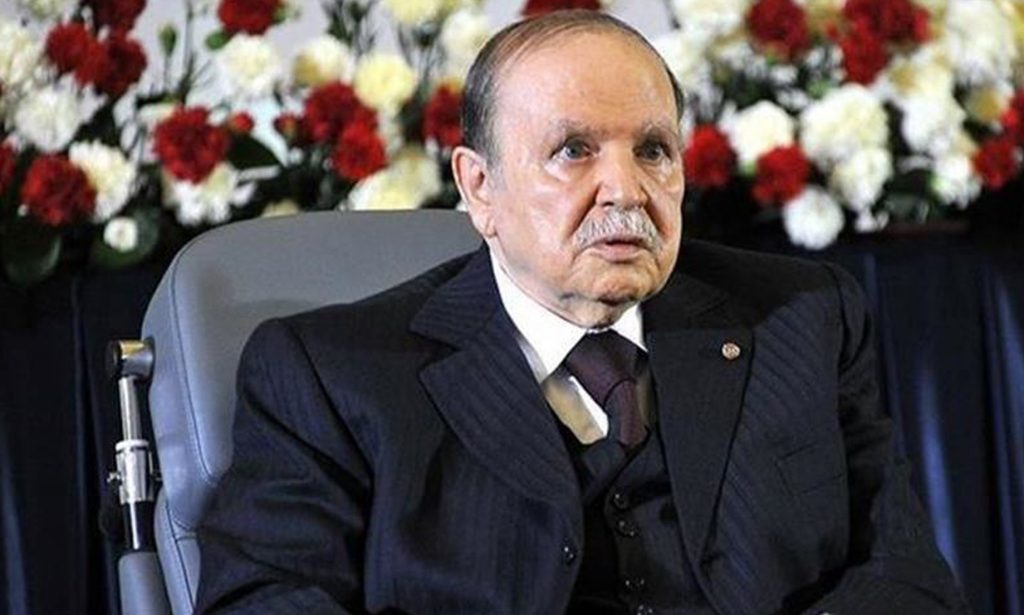
Aged president’s decision comes hours after Algerian army chief demanded his ‘immediate departure’. Photo courtesy of Anadolu
The ailing, 82-year-old leader stood down shortly after the army chief of staff demanded immediate action to remove him from office, following weeks of mass protests against his rule.
“There is no more room to waste time,” state news agency APS quoted Lieutenant General Ahmed Gaed Salah as saying.
Bouteflika had sought to fend off the wave of dissent against his two-decade-old rule that began on Feb 22 by reversing his decision to seek a fifth term. But he did not say when he would go, further angering protesters.
Bouteflika’s long reign
A fighter in the 1954-1962 war to end French colonial rule, Bouteflika became independent Algeria’s first foreign minister and one of the forces behind the Non-Aligned Movement that gave a global voice to Africa, Asia and Latin America.
First elected president in 1999, he negotiated a truce to end the fighting and wrested power from the secretive military-based establishment known as “le pouvoir” (the powers-that-be).
Helped by oil and gas revenues, Algeria became more peaceful and richer. But it remains mired in corruption and political and economic torpor in a region where uprisings brought changes elsewhere.
With a cushion of foreign reserves and a population wary of major upheaval after their civil war, Algeria avoided the Arab Spring revolutions that toppled leaders across the region in 2011.
But protests against poor living standards, the lack of job opportunities and services were common even before the mass protests, and foreign investors are keen for economic reforms that will cut the red tape that often hampers business.
Bouteflika’s roots
Some biographers say Bouteflika was born in Tlemcen, western Algeria, and others give his place of birth as Oujda, just over the border in Morocco.
Aged 19, he joined the rebellion against French rule as a protege of Houari Boumediene, a commander who would later become Algerian president.
After independence, Bouteflika became minister for youth and tourism at the age of 25. The following year he was made foreign minister.
Dressed in the tailored suits and sunglasses fashionable in the 1960s, Bouteflika became a spokesman for states emerging from colonial rule, given added authority by the cachet Algeria had earned from defeating France.



